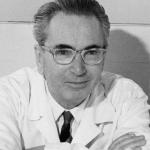By now the debate about evangelicalism has petered out. (For background, see these posts.) But something remains to be said, at least from that quarter of the Protestant world where church membership matters more than a burning in your bosom. That something has to do with church membership, the ministry of pastors (and other officers), and the standards that set one denomination apart from another.
John Fea concluded that all the historical evidence and the seasoned judgments of other historians pointed to Wheatley’s standing not as a Congregationalist (which was her membership) but as an evangelical. How does evangelicalism differ from Congregationalism? One difference is that historians get to determine the standards and who belongs to the evangelical tribe. Here are Fea’s criteria:
But rather than seeing the 18th-century evangelical movement as a guise for racism, patriarchy, or something else, Winiarski thinks Bebbington’s category of “conversionism” is too “flat.” He thinks that evangelicals in early New England were defined by a spiritually powerful experience of the New Birth that transformed their lives in profound ways–a type of conversion that was much more radical, Holy Spirit-empowered, and instantaneous than the old Puritan “morphology of conversion.” Thomas Kidd makes a similar argument in his history of the First Great Awakening. If Gloege wants to apply his Religion Dispatches argument to the 18th-century (and, again, I am not sure he does), he is going to have to engage with these historians and others.
In my view, the eighteenth-century evangelical movement must be defined primarily by the born-again experience (as Jesus taught in the Bible, as centered on the cross, and as an impetus for evangelism, missionary work, and social justice). This, it seems, is the only way to distinguish someone associated with the evangelical movement from someone who was not.
When Fea looks to the body of literature on 18th-century Protestantism, he finds a consensus that again puts Wheatley in the evangelical camp:
I could quote other scholars as well, but I think you get the idea. Wheatley was an important voice in the 18th-century movement defined by a shared commitment to the new birth. We can call that community “evangelical,” “New Light,” Whitefieldarian,” or something else, but in the end it was a spiritual fellowship of believers, certainly ensconced within 18th-century views on race, gender and social class, that came together around the shared experience of the new birth.
Fea is especially eager to preserve evangelicalism as inherently a spiritual or religious phenomenon, one that cannot be reduced to other parts of human experience:
The First Great Awakening, and the larger evangelical movement, as understood in its 18th-century context, was a ultimately a religious movement–a movement about spiritual experience informed by an encounter with God through the new birth. This encounter, many believed, had the potential to transform a person’s life and launch it in a new direction characterized by service to Jesus Christ. When historians make it primarily about something else–the coming of the American Revolution, a manifestation of racism and patriarchy, an example of consumer culture–they miss what the movement meant to its participants and they undermine spiritual belief and lived religion as a legitimate category of analysis.
Notice how this sort of judgment is akin to what church officers did in the 18th century and continue to do today in Protestant congregations. That is, officers duly set apart for oversight and administration evaluate the professions of faith made by people who want to join a congregation. Officers have to evaluate a variety of factors, the words used to describe religious experience and the nature of the gospel, the sincerity of such words, and whether the person’s life matches in some way their profession of faith.
Historians like John Fea and Tommie Kidd do the same thing actually. Consequently, when they say Phillis Wheatley is an evangelical, they are making a judgment about her spiritual status and eternal destiny.
Should historians really do something that church officers have been ordained to do? Historians may not think they are experts of have spiritual authority, but shouldn’t they notice the sort of finality implied in their judgments? And why don’t they see (if they don’t) how much their work overlaps with that of churches? You have to wonder if someone like Fea thinks he is a better judge of Wheatley than the officers at her Congregational church then, or Protestants today who have to make determinations all the time about believers’ faith?
That’s one of the reasons someone could write this (all you need to do is change some of the names):
An evangelical (with Internet access, at least) trying to make sense of his or her religious identity has much from which to choose thanks to the parachurch ministries of
GrahamThe Gospel Coalition,LaHayeTim Keller, andDobsonJohn Piper. But without even raising questions of quality of the material, an evangelical in the United States has no reason to hold or follow any of the teachings or practices recommended by the largest evangelical outlets in the country. Being an evangelical requires very little and that is partly the function of the parachurch. Parachurch ministries have no binding address. Instead the relationship between them and those who buy their products or give to their works is largely analogous to that between a business and consumers. Parachurch organizations have the goal of adding to mailing lists in order to increase the chances of raising more revenue through direct mail appeals. Most of the books and tapes they produce become incentives for donors to give more. Of course, their effort is to further an awareness of Christ and to instruct in the ways of Christianity. But the parachurch, by virtue of its economy of scale, sends a message about evangelicalism that may actually impede its religious objectives: to be an evangelical is to be in a perpetual frenzy of trying to get more — more money, more contributors, more access, more zeal, and of course more believers.Very different is the sense one receives when inquiring what it means to be a Pentecostal or a Lutheran. Here the expectations are firmer, the identity clearer and the requirements for belonging concrete. Churches, unlike parachurch entities, have creeds which let members or folks contemplating membership know the content of the denomination’s faith. Churches also have structures of governance that provide a mechanism of accountability that is very different from the market model that determines which parachurch celebrities are the most popular, and so authoritative. These forms of church government do more than set limits on church officers but also are public structures in the sense that members and non-members alike can figure out what the rules are and whether a church is abiding by them. Decisions of parachurch agencies, because less public and more like a business, have the potential of being arbitrary. Churches also have a common set of liturgical resources, like hymnals, that give members a common vocabulary for worship. Indeed, churches generally gather once a week for worship, thus counteracting the anonymity that characterizes mass marketing entities such as parachurch agencies. Such local knowledge comes with a price. It means having to get along with other church members who may not be the best pot-luck supper companions. But its benefits include forms of discipleship and diaconal assistance that parachurch efforts can hardly provide, thanks both to the latter’s international scale and steady pitches for support.
If being an evangelical is liking
Billy GrahamJonathan Edwards, with a spot in one’s heart reserved for an occasional fling withJames DobsonJerry Falwell, Jr. orTim LaHayeThabiti Anyabwile, then being evangelical requires very little from its adherents. One would be hard pressed to imagine how evangelicalism could take the concrete form of a church with a creed, set order for worship, and rules for ordination. (Deconstructing Evangelicalism)
You might think that historians who study Christianity would have a sense that the standards of churches matter in understanding the Protestant past. But the study of evangelicalism, just like born-again Christianity itself, is indifferent if not hostile to the subtleties of organized, institutional churches.
















